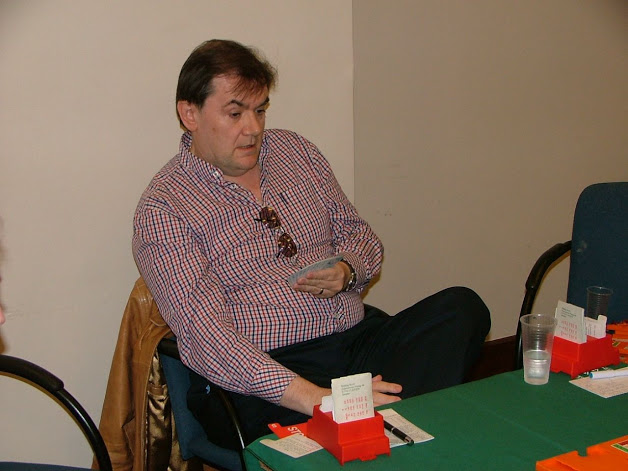Source: http://www.bridgeace.com/
We have all faced the situation on many occasions. Dummy has x-x-x in a suit and leads to declarer’s king. We (over declarer) have A-x-x. Should we win or should we not? If you win, declarer has K-Q-10 and now finesses against partner’s jack when he would almost certainly go wrong if his king had held, and, if we duck, declarer has K-x-x and needed one more trick for his contract! Not exactly original, I agree, but that type of situation is a common variation on a theme which extends to many hands. It is the ‘tip of the iceberg.’ Consider these hands as declarer:
South deals and N/S Vulnerable
You are playing, not surprisingly, in 3NT and West leads the two of spades (fourth highest). Clearly the contract depends on the diamond suit which in technical terms should be tackled by cashing the ace, coming to hand and leading up to the queen. However, a more practical way to play is to win the jack of spades at trick one, and lead a low diamond from dummy. East is obviously under pressure with K-x; he is unaware that the entire hand depends on the suit, and even with K-x-x he may be tempted to put up the king to play a spade through to partner’s supposed K-x-x-x. Now, hopefully, you are beginning to see a common thread. On both the above positions one opponent was forced to guess the holding of a suit in the closed hand without any real clue. That is the basis of my tip. Whenever you can, use the power of the closed hand.
In positions where you can be sure of the location of the high cards, then even more can be done. Try leading from K-10-x-x-x in dummy towards a low singleton in hand, if you are sure the ace is on your right. How can he tell you do not have a singleton queen? And even if he has the ace and queen you may get him to put up the queen, giving you a chance to ruff out J-x-x in his partner’s hand.
With K-Q-x-x-x opposite a void, don’t automatically lead the king for a ruffing finesse; it may be better to lead a low one first, testing your right-hand opponent; you may after all have a singleton jack and he may waste his ace. Also, if he plays low smoothly you have a good clue as to the location of the cards.
Be subtle also. Consider this:
North Deals Both Vul
In a recent pairs game I played this hand in four spades after a typical online casino sequence arriving at the wrong contract. A diamond to the ace and one back left me with the problem of how to broach the spades. How would you play? First I won the king of diamonds, then crossed to dummy with a heart and led the queen of spades. East (with K-9-7) could not understand why I had gone to the apparent effort of crossing to dummy to lead spades unless I had something like A-J-10-x-x-x (he knew I had at least six). So he ducked and I stole a trick. How could he tell what to do? The answer was that he couldn’t. You have forced a guess by giving the impression of a different hand. Sometimes you set the defenders a problem which you may not have seen yourself. My final hand will hopefully illustrate exactly what I mean. Look at it from East’s point of view:
| West | North | East | South |
| 2NT1 | |||
| Pass | 4NT | Pass | 6NT |
| All pass |
Partner leads the seven of spades to dummy’s king, declarer following with the jack. A club from dummy goes to declarer’s king and partner’s two. Now the jack of hearts, two, ace, eight is followed by another club, and you?
Declarer appears to have: ![]() A Q J
A Q J ![]() K Q J
K Q J ![]() K J x x
K J x x ![]() K Q 9
K Q 9
to make sense of the bidding and play, so you (as actually happened at the table) play low. However, the full hand is:
Declarer was just trying to duck a trick to attempt a squeeze or hope the jack of clubs was doubleton, but without really knowing why he arranged to lead clubs twice from dummy. His reward was obvious, but noone could blame East.
My BOLS bridge tip is:
[box type=”info” style=”rounded” border=”full”]Make use of the power of the closed hand. It is declarer’s biggest edge. Try to lead from dummy as often as possible, even when there may appear at first sight to be little advantage.[/box]


